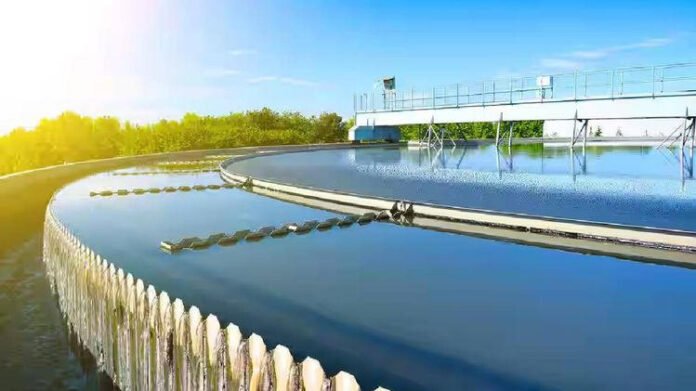The northeastern state of Tripura, known for its rich natural beauty and historical significance, is on the verge of a major transformation in its water supply infrastructure. The state government has launched an ambitious plan to improve its water treatment and distribution system, with the construction of three new water treatment plants (WTPs). This initiative aims to tackle the growing demand for potable water, improve water quality, and ensure sustainable access to clean water for its residents.
The need for reliable and safe drinking water has become an increasing concern for Tripura, especially as the population grows and urbanization accelerates. While the state is blessed with abundant natural water resources such as rivers, lakes, and reservoirs, ensuring that these resources meet the quality standards for drinking water has been a persistent challenge. Currently, much of the state’s water supply comes from surface water sources, which are often susceptible to contamination due to both natural and human factors. In response to these challenges, the state government has prioritized improving water purification and treatment processes.
A Major Step Towards Modernizing Water Supply
The introduction of three new WTPs is part of a broader strategy to modernize Tripura’s water supply infrastructure. These plants are being strategically placed in key locations across the state to serve both urban and rural populations. The plants will utilize state-of-the-art technology to filter and purify water, ensuring that it meets the stringent standards set by the government. Once operational, these treatment plants will provide cleaner, safer water to thousands of households, reducing the burden on residents who often rely on unfiltered or contaminated water sources.
The construction of the treatment plants is expected to significantly enhance the water supply system, especially in areas that have long struggled with water quality issues. For instance, the capital city of Agartala, which has seen rapid urban growth over the past decade, has been facing challenges in meeting the rising demand for clean water. Similarly, rural areas in the state, where access to potable water has historically been limited, will greatly benefit from these new plants.
Technological Advancements in Water Treatment
The new plants will employ the latest water treatment technologies, such as multi-stage filtration, reverse osmosis, and ultraviolet (UV) disinfection, to remove impurities and harmful pathogens from the water. These technologies not only improve the quality of drinking water but also ensure that the water remains free from pollutants that could cause waterborne diseases. Moreover, the plants will have the capacity to treat a larger volume of water, allowing them to meet the demands of both growing urban centers and remote rural villages.
The implementation of advanced technologies will also make the treatment process more efficient, reducing energy consumption and operational costs. With climate change posing new challenges to the availability and quality of water, it is crucial for Tripura to invest in sustainable water management practices. These treatment plants will be designed with a focus on resilience, ensuring that they can function even during periods of drought or irregular rainfall.
Ensuring Sustainable Water Management
Beyond improving the quality of drinking water, the new WTPs are also a part of Tripura’s broader strategy to promote sustainable water management. The state government is working closely with environmental experts to ensure that the water resources used for treatment are protected and managed responsibly. The government is also emphasizing the need for public awareness campaigns to educate residents about water conservation and the importance of safeguarding water sources.
In addition, the state is focusing on the improvement of its distribution networks to ensure that the treated water reaches all corners of Tripura. By addressing both the quality and accessibility of water, Tripura hopes to reduce the disparities between urban and rural water supply systems and ensure that every resident has access to clean, potable water.
Impact on Public Health and Development
The new water treatment plants are expected to have a profound impact on public health in Tripura. Contaminated water has been a leading cause of waterborne diseases such as diarrhea, cholera, and dysentery, which have claimed the lives of many in rural and underdeveloped areas. By providing clean, safe drinking water, the new plants will help reduce the incidence of these diseases and improve the overall health and well-being of the population.
Moreover, the enhancement of water supply systems will foster socio-economic development in the state. Access to reliable water is essential for various sectors such as agriculture, industry, and education. It will also improve sanitation and hygiene, which are critical for the state’s continued growth and prosperity.
The construction of three new water treatment plants is a significant milestone in Tripura’s efforts to ensure the well-being of its residents by providing them with clean and safe drinking water. These plants will play a crucial role in meeting the state’s growing demand for potable water while safeguarding public health and supporting sustainable development. With modern technology, an improved distribution system, and a commitment to responsible water management, Tripura is taking a giant leap towards a future where clean water is accessible to all its people.


